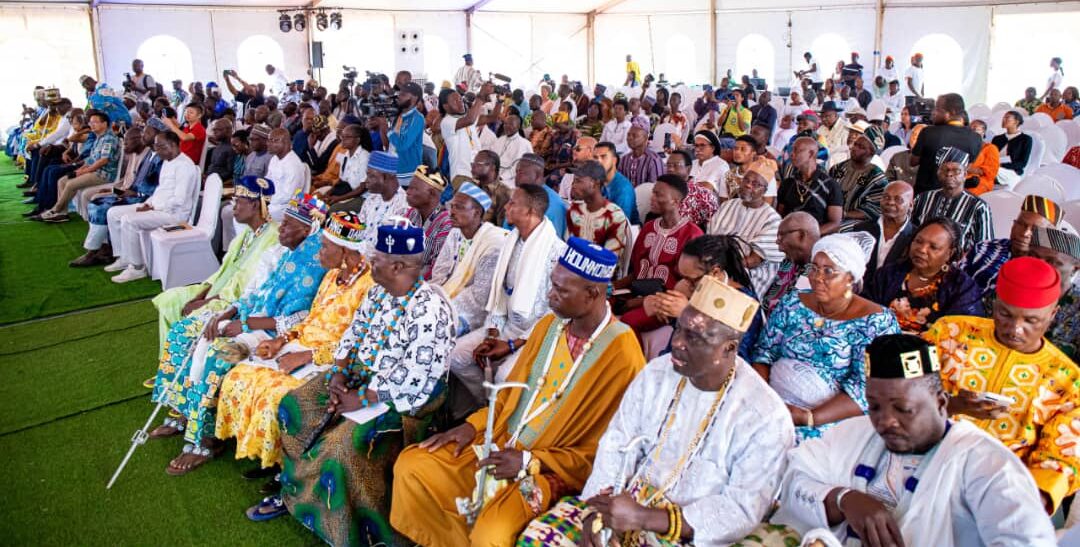The day was marked by a memorial march, wreath-laying ceremonies, cultural performances, and a series of conferences and film screenings.
Ouidah, a historic departure point for thousands of enslaved Africans destined for the Americas, hosted this year’s commemoration.
The events began with a memorial march starting from the Route des Pêches and culminating at Ouidah Beach, at the symbolic Door of No Return.
The gathering included dignitaries, traditional leaders, and delegations of African descendants from Haiti, Guadeloupe, Martinique, Belgium, France, and beyond, all paying tribute to the memory of African captives and deportees.
In a poignant moment, the guests were asked by Ouidah’s Mayor, Christian Houétchénou, to honor the “bravery and resilience” of the enslaved with a minute of applause.
“This duty of memory that we owe must be passed on to the younger generation in every possible way so that this tragedy is never forgotten,” the mayor emphasized.
Eric Totah, Chief of Staff at the Ministry of Tourism, Culture, and the Arts, representing Minister Jean-Michel Abimbola, highlighted Benin’s extensive program to restore and preserve sites linked to the history of slavery.
These include the Portuguese Fort, the Auction Place, the Zoungbodji Memorial, the Slave Route, and the Door of No Return, all of which are undergoing significant restoration and expansion.
“These sites and the associated infrastructure are designed to bear witness to this history and provide future generations with effective tools for its transmission. The Museum of Slave Memory and the Immersion Ship are key examples of this approach,” Totah explained.
He added that these efforts are part of the government’s broader vision to transform these memorial sites into a bridge between Benin and African descendants worldwide.
Beyond the commemorations, the International Day of Remembrance aims to strengthen ties with the African diaspora.
“We seek a relationship that is stronger and more collaborative so that from this painful history, we can build a bridge to conquer the world,” Totah added.
On behalf of the African diaspora, Barrister Georges-Emmanuel Germany dah Milèko expressed gratitude to President Patrice Talon and his administration for their initiatives, particularly the law granting Beninese nationality to African descendants.
He praised the government’s efforts to reduce the geographical and emotional distance between Cotonou and cities like Paris, Brasilia, and Pointe-à-Pitre, noting, “This initiative makes the Atlantic Ocean a river that is easier to cross. Imagine a Benin with this diaspora acting as an army of diplomats in the interests of Benin and Africa.”
The 2024 commemoration was themed “30 Years of the ‘Slave Route’ Project: Resistance, Freedom, Heritage.”
The event featured panel discussions on the role of memory keepers in the transatlantic slave trade and an exploration of the state of knowledge on the slave trade in Benin through written, archaeological, and oral sources.
The day concluded with a screening of the film “The Color of Slavery” by Patrick Baucelin, followed by a discussion with the filmmaker over cocktails.




